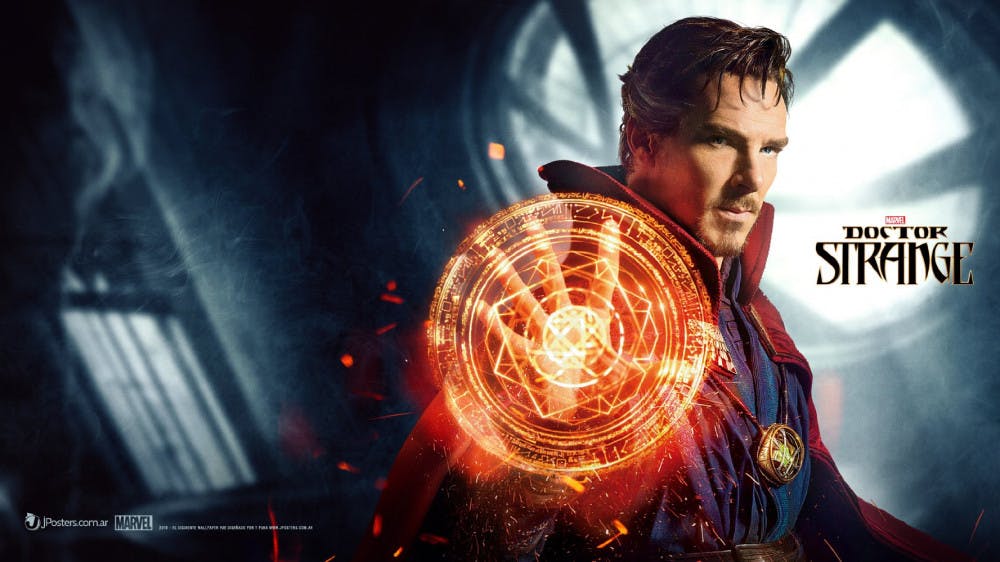Be warned, dear reader. This editorial contains many spoilers for Marvel’s latest movie, “Dr. Strange.”
There were a lot of flaws in the cinematic take on “Dr. Strange.” The plot felt rushed, character development felt ignored and dialogue was juvenilely typical of Marvel movies. What redeemed “Dr. Strange” was not only its stunning visual effects (those among us who have ever experimented with psychedelics were plunged back down that familiar and beautiful rabbit hole), but also its polite nod to existential philosophy.
We’re grossly paraphrasing the plot of “Dr. Strange” here, but at the end of the movie, our hero, Dr. Stephen Strange, saves humanity from Dormammu, a villain who represents entropy. To defeat Dormammu, Dr. Strange must negotiate for the fate of humanity in the face of Dormammu’s seemingly inevitable destruction. Strange loops time infinitely, trapping Dormammu and himself in the same moment of negotiation eternally. Agitated, Dormammu agrees to leave Earth alone.
Keep this in mind as we proceed. In his essay, “The Myth of Sisyphus,” French-Algerian philosopher Albert Camus asks the reader to contemplate the punishment of the mythical and tragic Greek character Sisyphus. After Sisyphus vocalizes how he believes he is more cunning than the gods, the gods punish him to an eternity of rolling a large rock up a mountain. Upon completing this task, the rock would magically fall back down the mountain, forcing Sisyphus to retrieve it and roll it back up. Like Dr. Strange, he is condemned to repeat this fate eternally.
Camus recognized that, like Sisyphus and Dr. Strange, humanity is inherently cut off from its ultimate purpose. We have several options going forward in our absurd lives. Theologically based philosophers like Søren Kierkegaard saw this absurdity as part of God’s “larger plan.” Camus replied this was merely a distraction from the world we actually live in. Camus then proposes that suicide may be an answer. His logic is that the only way to win the game is not to play it. This, he posits, is a logical leap. Suicide is, in fact, losing the game you choose not to play. This simply negates the problem rather than solve it.
The answer, to Camus, lies in total and complete submission to our absurd fate. We must consciously and wholeheartedly accept the notion of meaningless life. Rather than generating hope that leads to unrealistic yet fantastical dreams of other worlds and realities, we must protest our absurd lives by creating our own meaning. We could generate art that highlights our human condition or engage in scientific enterprises that make our lives less burdensome and bring us closer to truth.
Camus proposes we re-imagine Sisyphus (as we propose you re-imagine Dr. Strange) in light of this new discovery. Rather than see Sisyphus as punished by rolling that rock up the mountain eternally, Camus wants us to see Sisyphus as happy. Sisyphus doesn’t see his fate as meaningless; he creates meaning that rebels against his absurd punishment. Dr. Strange is a brilliant man. He became a doctor to save lives. When that car accident left him unable to practice, he could have given up. Instead, he chose to embrace the absurd challenge of learning the mystic arts so he could protect humanity. In order to do so, Dr. Strange sacrificed himself into an infinite time loop of being killed by Dormammu until Dormammu changed his mind about destroying Earth. Dr. Strange subjected himself to a fate far worse than rolling a rock up a mountain and became an absurdist hero far greater than Sisyphus.






